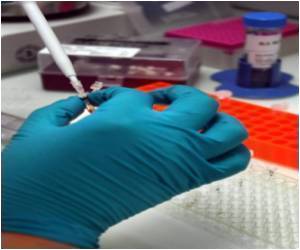Australian researchers are developing a new blood testing technique that could make drugs cheaper. It will also make blood collection less stressful for humans and animals.

There is already potential for this research to be commercialised.
ACROSS researcher, Dr Emily Hilder, said the innovation will help address some of the challenges of handling and storing blood samples, such as reducing biohazard risk, transporting samples safely to and from remote locations, and meeting ethical research standards.
“The new blood storage technology involves a polymer matrix that can also separate the specified drug from the blood within the storage medium, requiring less blood to be taken for each sample,” she said.
Dr Hilder said the current focus is on using the technology in drug development, future applications could change the way blood samples are collected from children and adults.
The technique is derived from the heel prick test developed in the 1940s for obtaining blood samples from newborn babies.
The University’s research commercialisation partner, UniQuest, is working with the ACROSS team to advance MilliSpot’s progress onto the market.
Advertisement
“This technology could revolutionise the pharmaceutical analysis in new drug developments,” Dr Hilder said.
“With more efficient techniques for storing and analysing samples, the costs and time required to develop new drugs can be reduced, and these benefits should be passed on to the patient.”
Advertisement
“We’re very excited about this technology and its potential for human benefit. Discussions are underway with a number of key industry partners who have recognised the value this innovation could bring to health care and to laboratory practices,” he said.
Source-Medindia













